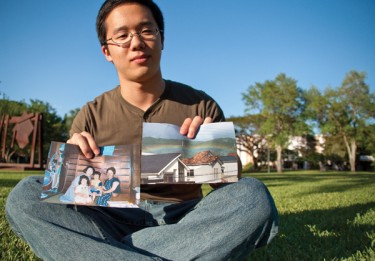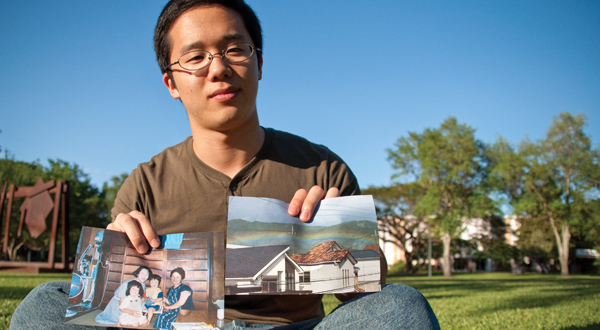
On March 11, Sophie Bishop, a sophomore from Tokyo, Japan, received a phone call at 4 a.m. from a friend who uttered the words, “it finally happened.” Out of confusion, she immediately opened her laptop to learn that a 30-foot tsunami and a 9.0-magnitude earthquake devastated northern Japan and was felt throughout the country.
“Basically we always talk about how the big earthquake will come in Japan and we’ve always had drills back in elementary school,” Bishop said. “When she said ‘it finally happened,’ she meant that what we were scared of finally occurred.”
For five hours, Bishop repeatedly tried to contact family members in Tokyo but received no response.
“I was just terrified the whole time because I didn’t know what happened. I heard that Disneyland was under water which is only about an hour away from my house, so I was completely scared,” Bishop said.
Fortunately for Bishop, her family contacted her at about 9 a.m. and ensured her that they were OK.
“My mom said that all the trains were basically shut down,” Bishop said. “Nobody could move and everybody had to walk home. Traffic was horrendous. My dad slept over his office because he couldn’t get home, so he stayed with his colleagues because our house is way too far.”
According to the National Police Agency of Japan, the earthquake and tsunami left 9,700 people dead and 16,501 missing as of Wednesday.
“My friends’ relatives are still not found in the area,” said Maha Kikugawa, a sophomore who is also from Tokyo. “There are so many people dying and people are just sad and depressed. Japan is completely different from two weeks ago.”
Kikugawa was awoken at 3 a.m. when her boyfriend heard of the earthquake happening back home.
“When I was in Japan I had earthquakes maybe every one or two weeks so it wasn’t a big deal. But this was one was very big so I couldn’t believe it,” Kikugawa said.
Unlike the northern city of Sendai where entire communities were swept by the tsunami, Tokyo experienced strong tremors but was not as directly affected. However, there is growing concern over the country’s food and water supply, as well as the radioactive effects of malfunctions at a nuclear power plant in Fukushima.
“In Tokyo they have to bring umbrellas outside because the gas explosion poisoned the air,” Kikugawa said. “My family fortunately evacuated to Okinawa Island, the most southern island, because they didn’t want to get exposed to the nuclear radiation. They’re staying there until my brother starts school on April 10. They’re too worried about radiation”.
Because the families of Bishop and Kikugawa are overseas, the university is trying to accommodate the needs of students alike that have been affected by the earthquake.
“We have 14 students that are from Japan that attend UM. As soon as the earthquake occurred, the department of international students and scholar services, and the division of student affairs, we all worked together. We contacted every student to make sure that their families were okay,” said Dr. Patricia Whitely, vice president of student affairs.
The Asian American Students Association is also developing fundraisers to donate all proceeds to the Japanese people. Selling t-shirts, hosting origami lessons and partnering with the Red Cross are among the tentative ideas to be performed in upcoming weeks.
“To see our members affected by what happened was devastating,” said Brooke Lemaire, vice president of the Asian American Students Association. “It is a tragedy, but with the amazing community we have at UM, I know we can all make a difference and help a wonderful country rebuild.”
Jonathan Borge may be contacted at jborge@themiamihurricane.com.






